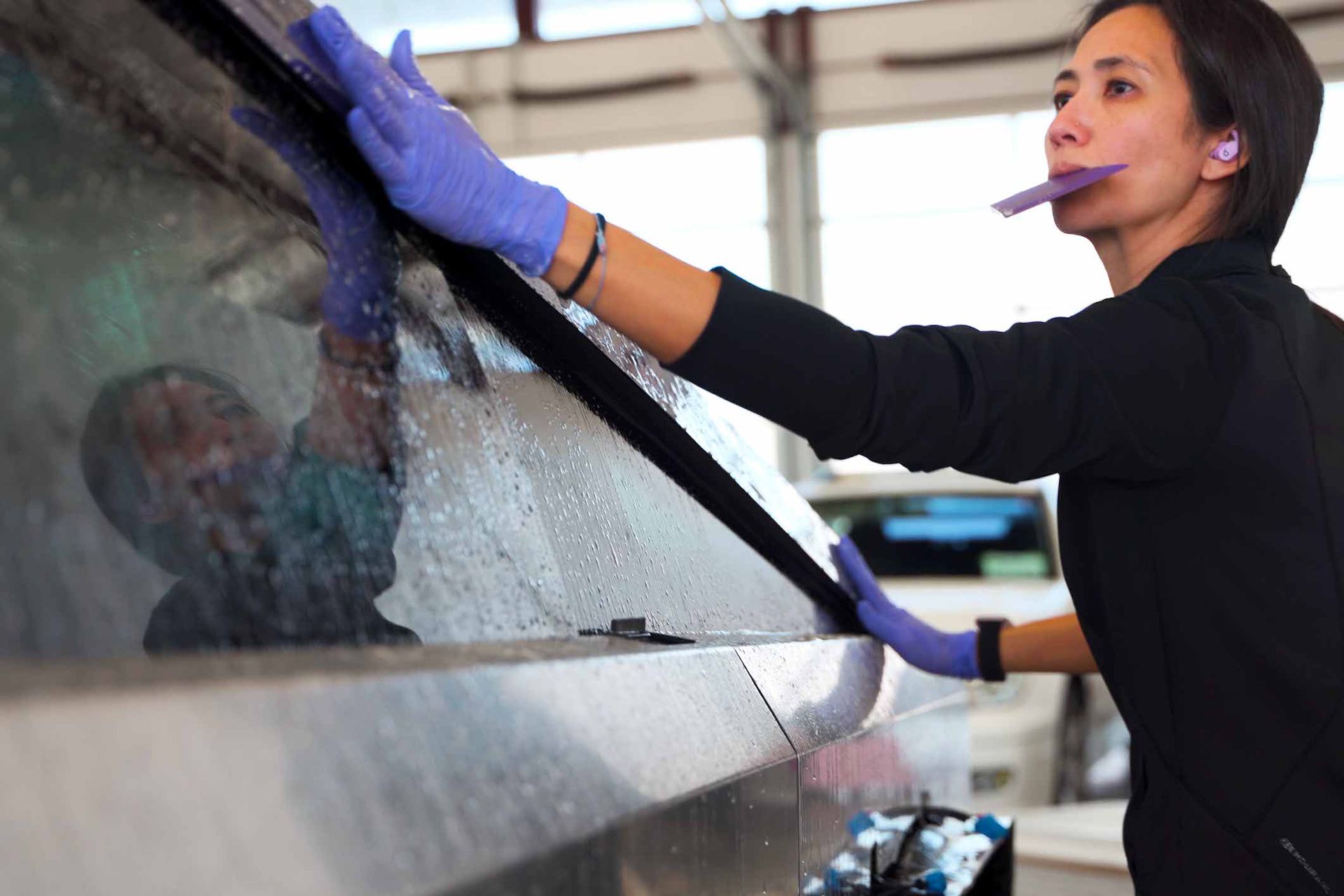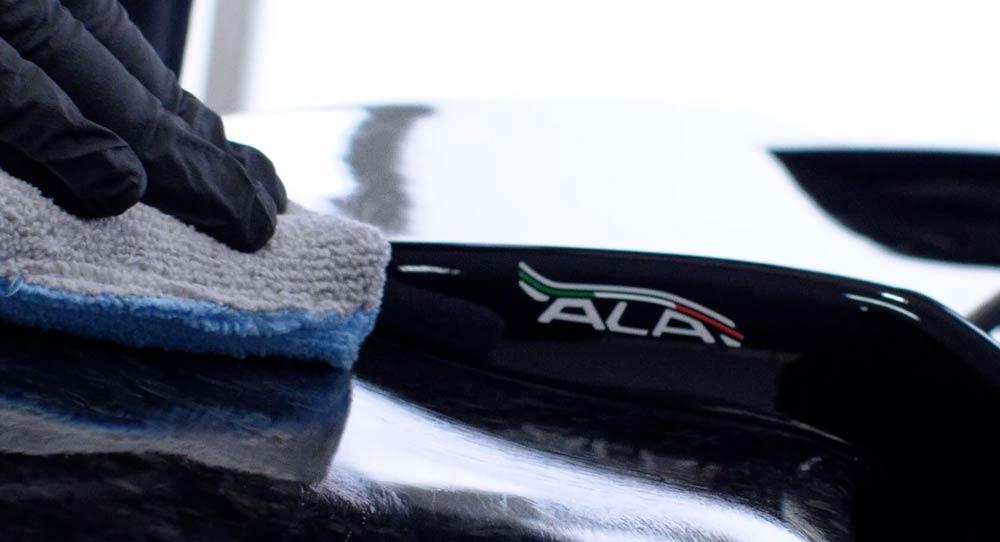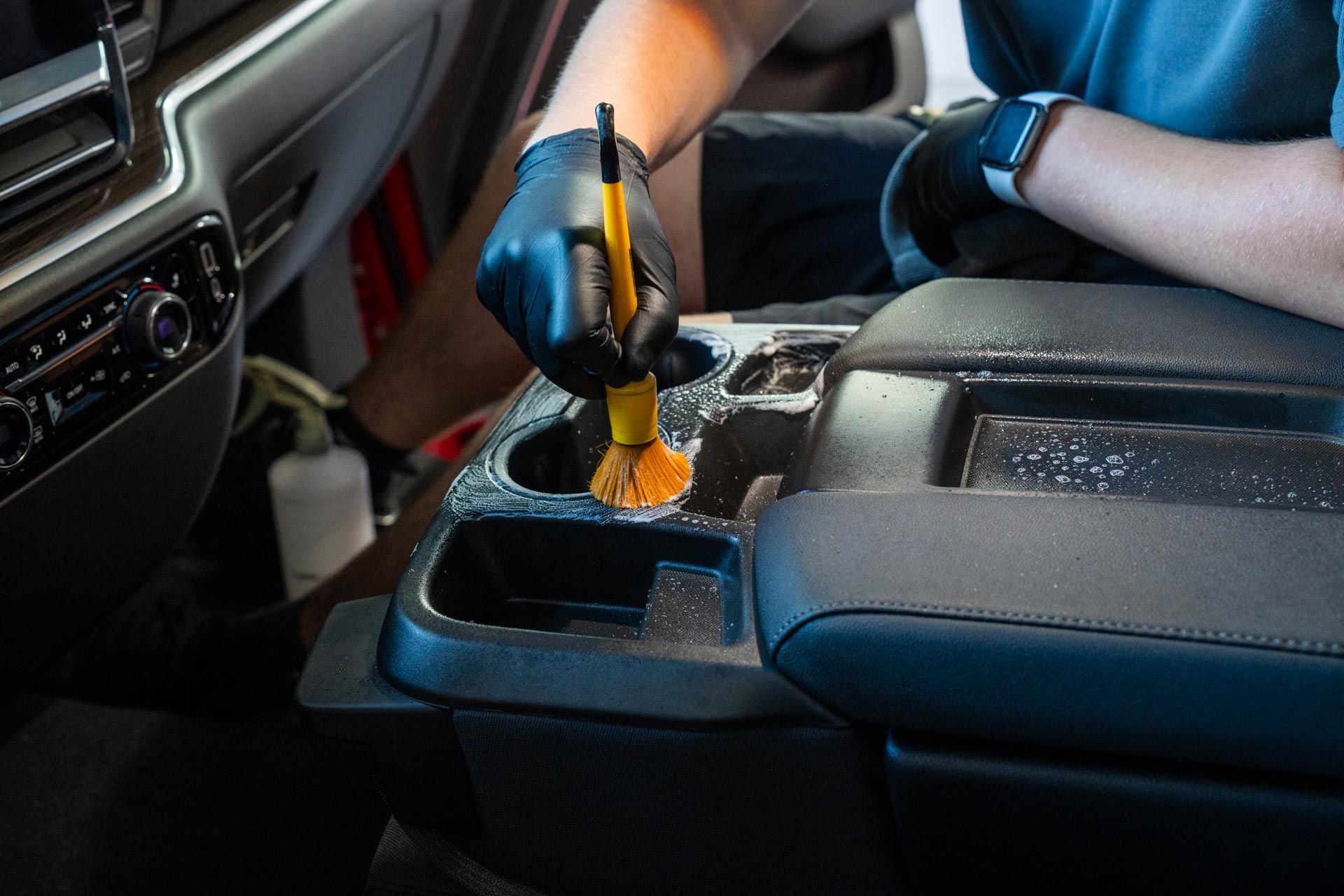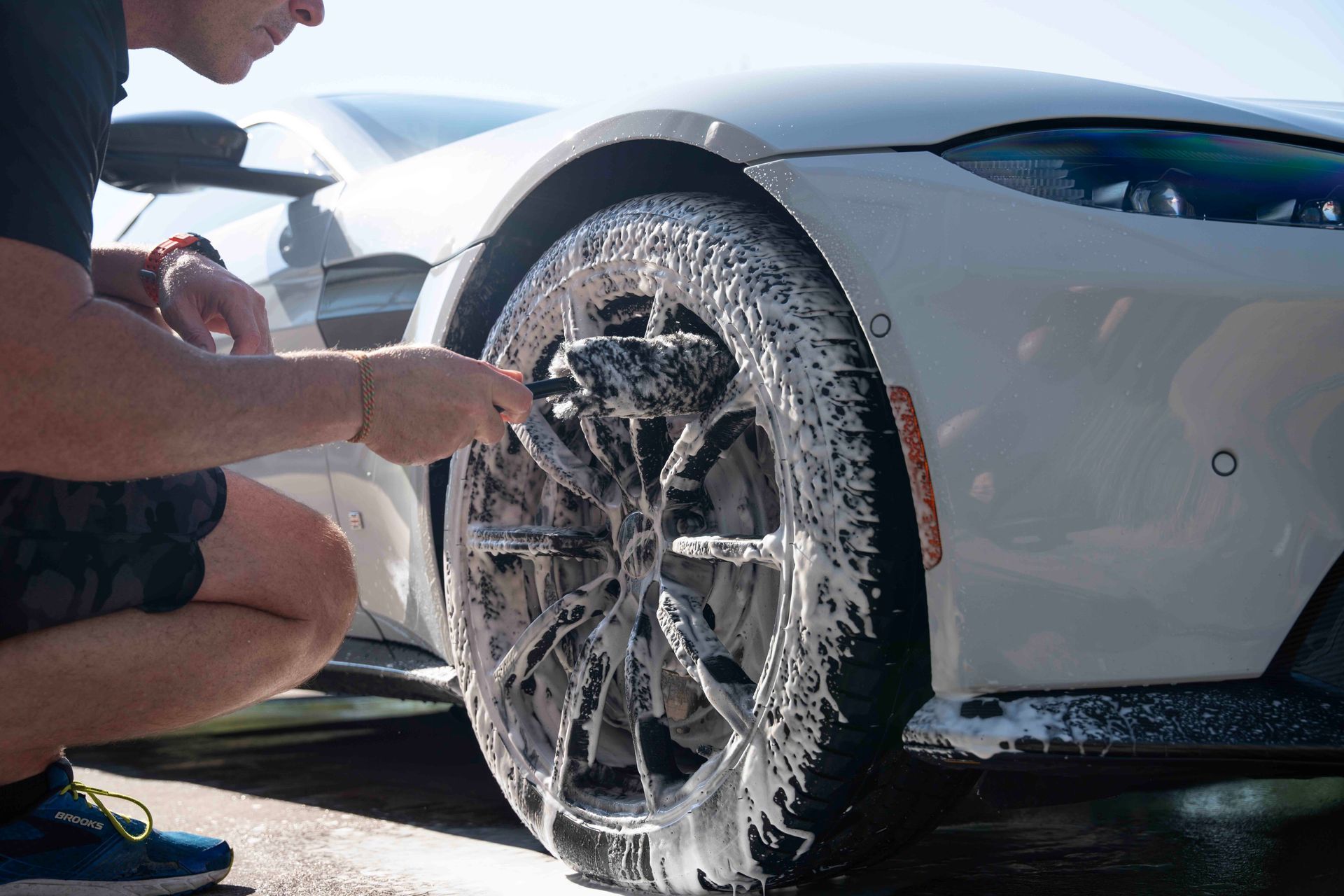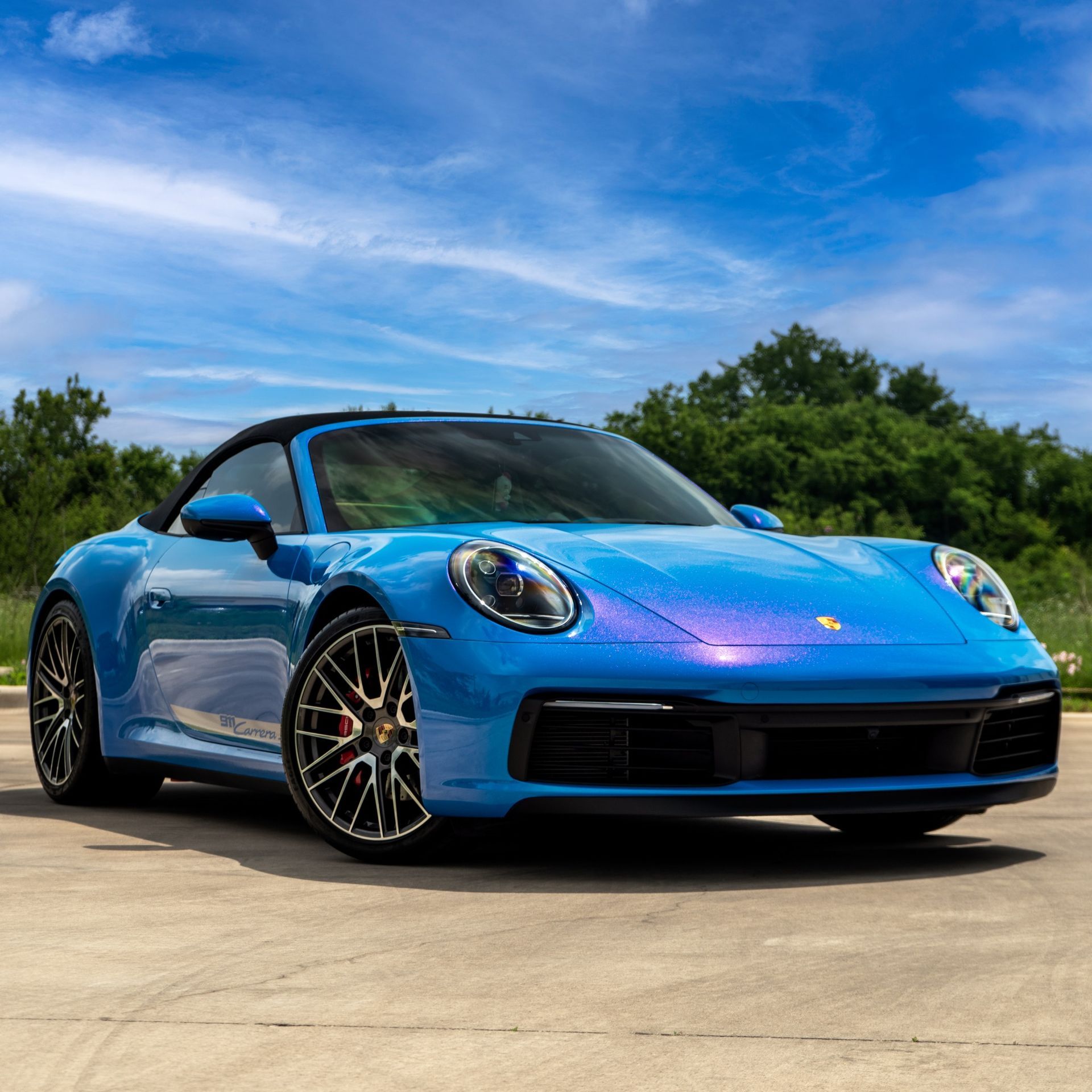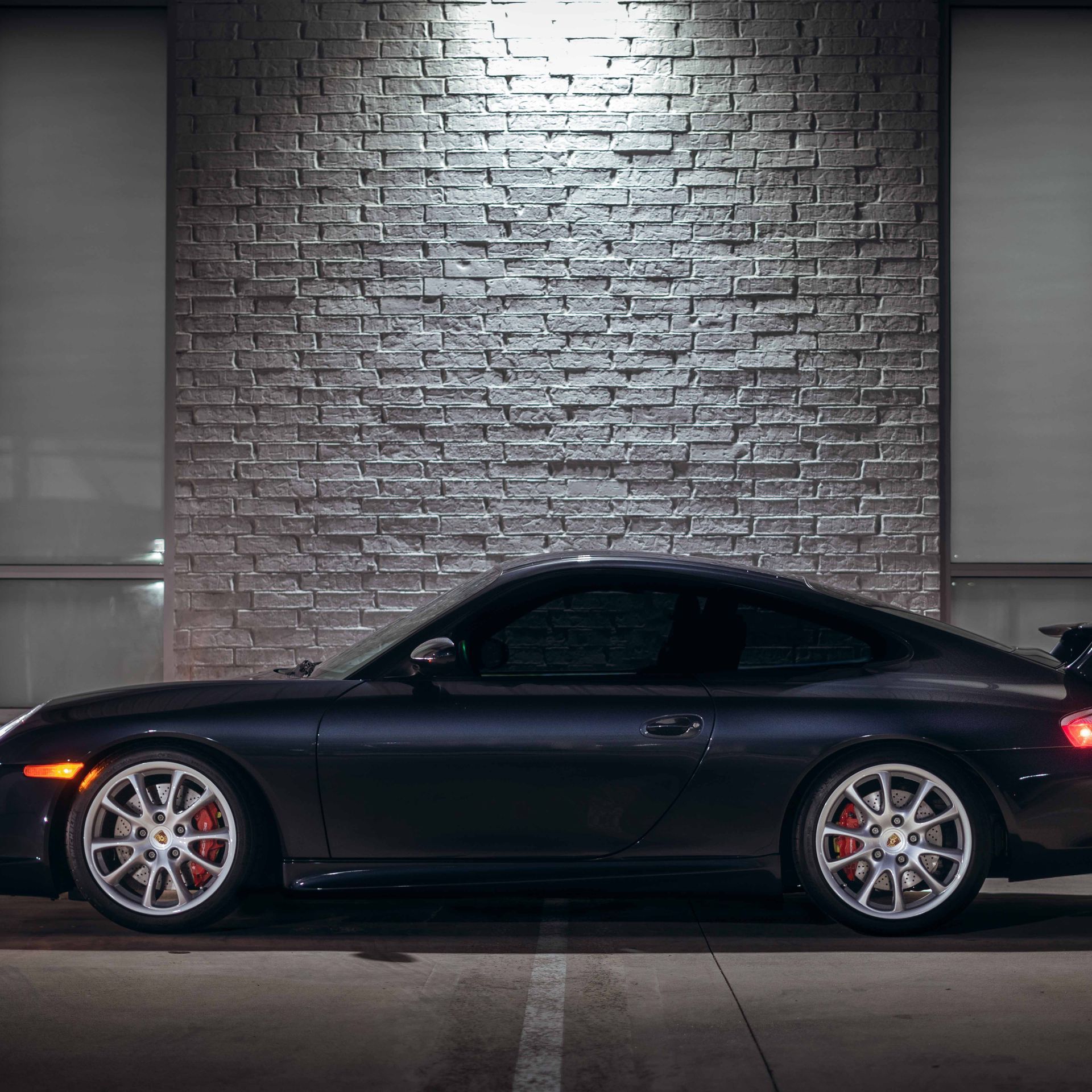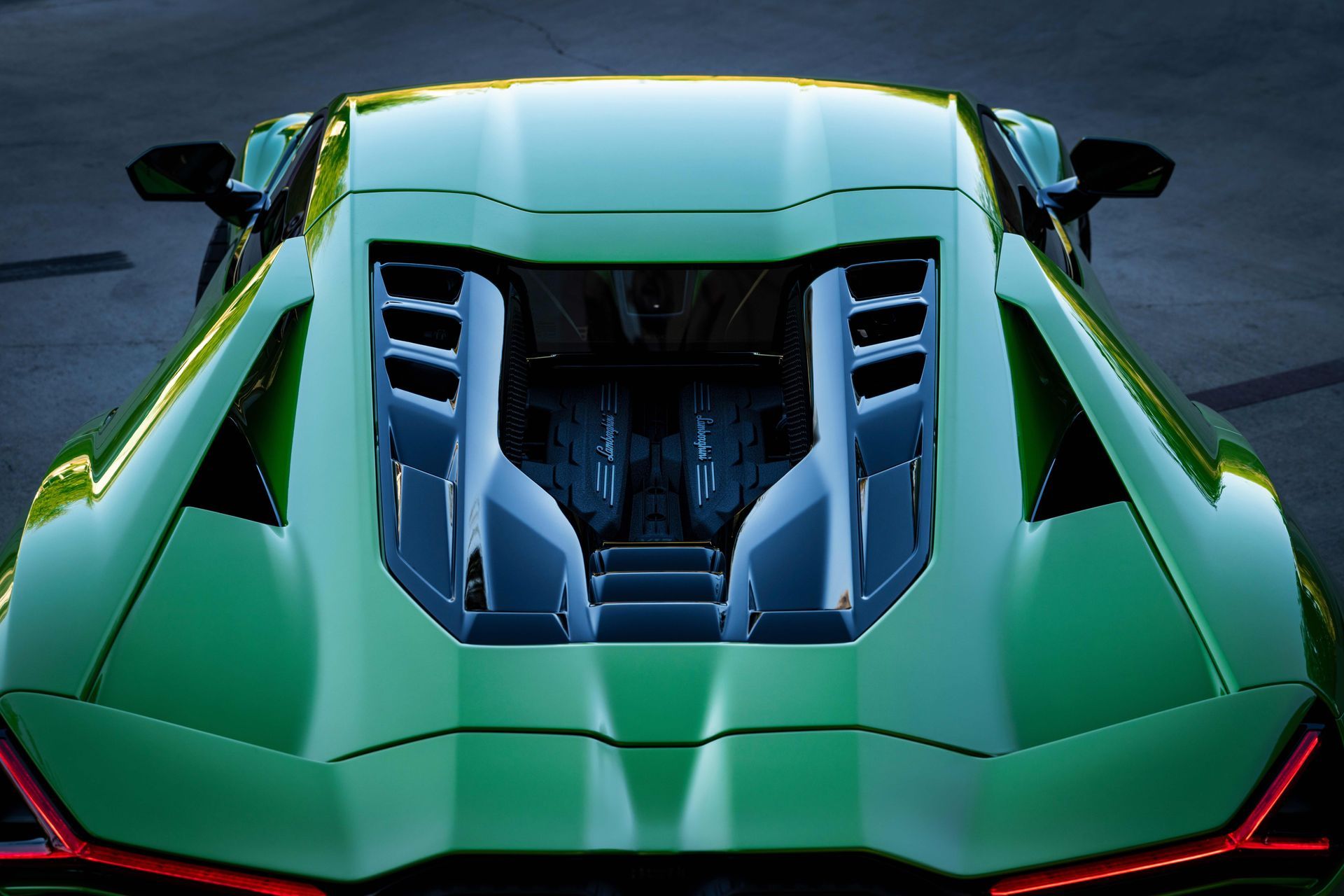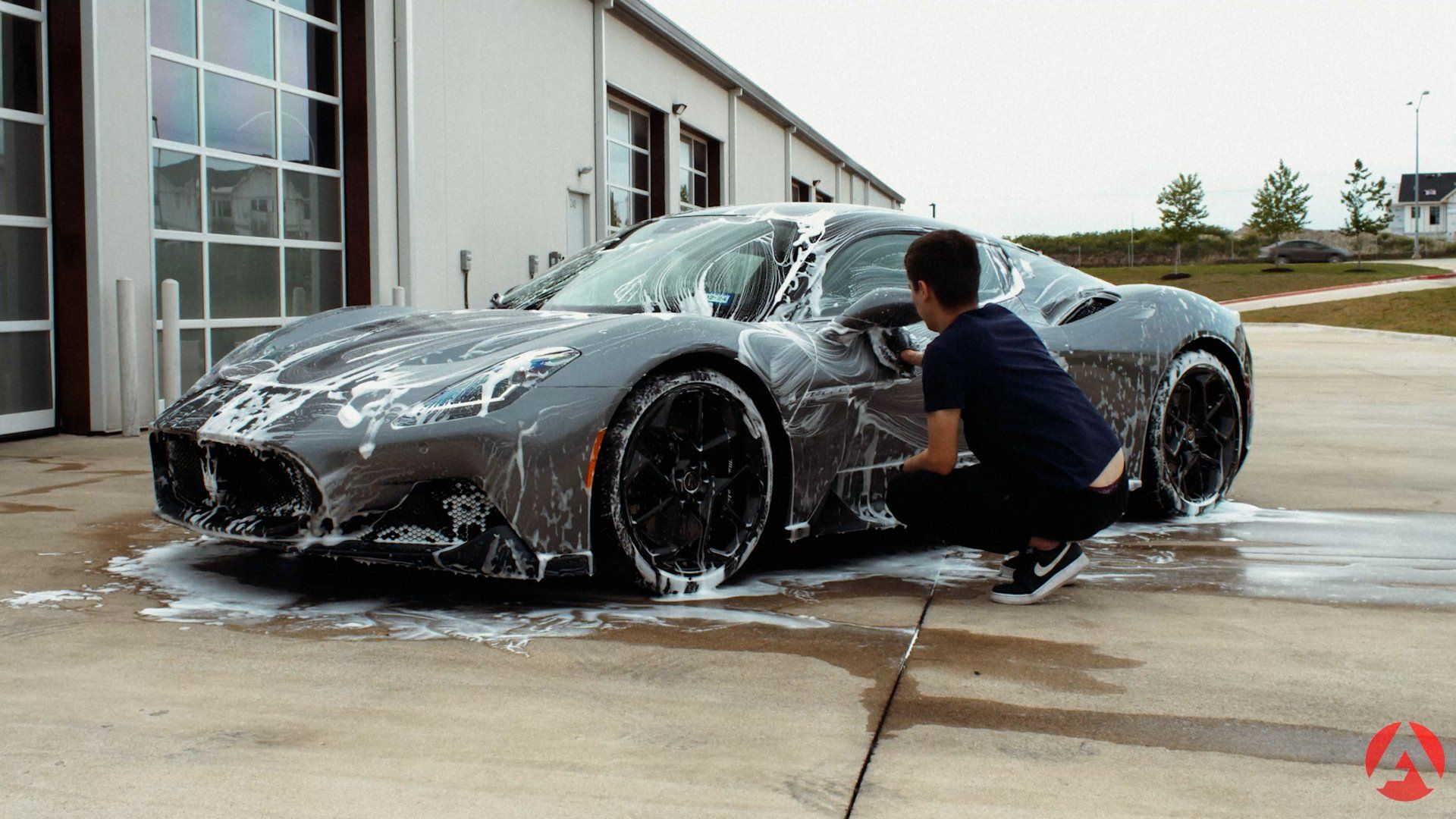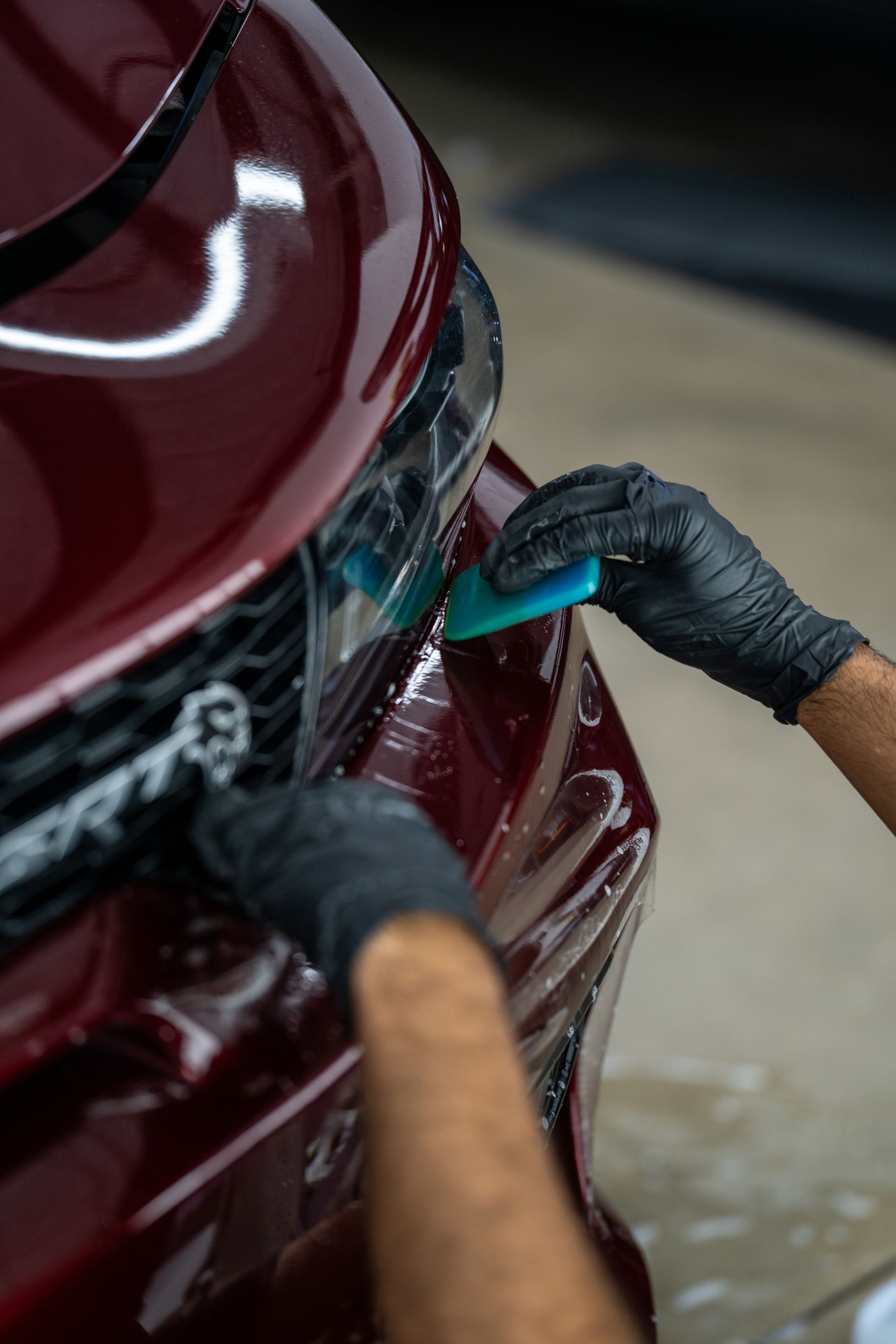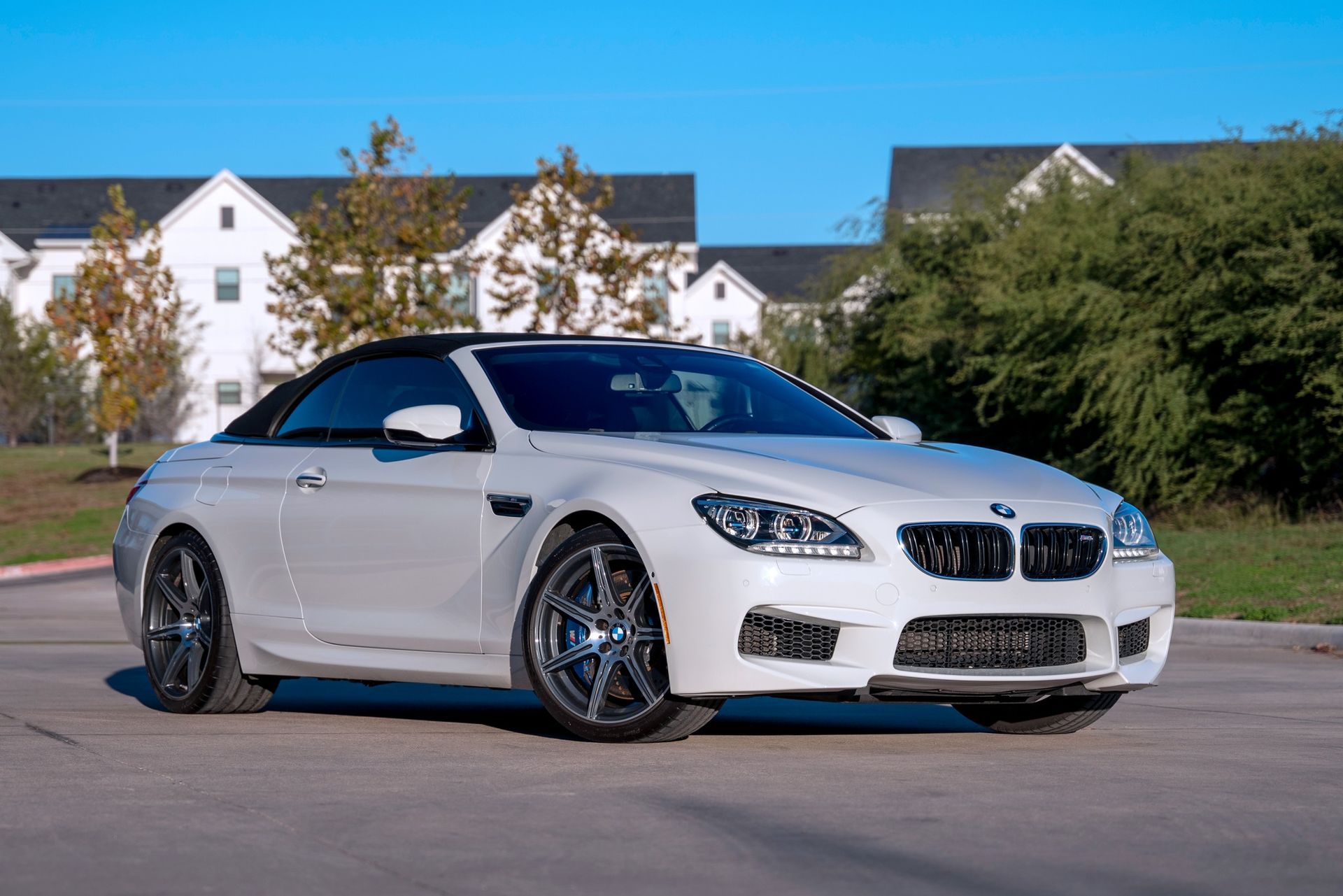Spray-On vs. Professional Ceramic Coating: Which is Right for You?
CALL (512) 296-0183
GET A QUOTE TODAYWhen it comes to protecting your car, you might find yourself wondering whether to go for a spray-on ceramic coating that you can apply yourself or fork over the cash for a professional-grade ceramic coating. It’s a tough choice! On one hand, DIY options seem tempting with their lower costs and user-friendly nature. On the other hand, professional coatings promise lasting protection and a level of shine that’s hard to beat. Let’s dive into the details and help you decide which option is right for you!
The key differences between spray-on and professional ceramic coatings lie in their application methods, durability, and cost. Professional ceramic coatings typically provide longer-lasting protection (up to four years) when applied by trained technicians, while spray-on options offer a more affordable and user-friendly alternative but generally require more frequent applications for similar levels of protection.
DIY Spray-On Ceramic Coatings
Spray-on ceramic coatings have indeed gained a following among car owners who appreciate their affordability and ease of use. Unlike professional coatings that require specialized skills, these products are designed so that virtually anyone can pick up a bottle and start applying with minimal fuss. You’ll find popular brands readily available at your local auto store. This accessibility is a major selling point; after all, who doesn't want to protect their vehicle without breaking the bank?
Now, let’s explore the application process itself because understanding each step will enhance your results significantly.
Steps for Application
The first essential step is to thoroughly wash your car. This may seem straightforward, but it's crucial to remove any dirt, dust, or contaminants that could interfere with the bonding process of the coating. Picture this: if you leave behind even a small speck of grime, that could prevent the ceramic coating from forming its protective layer properly. Consequently, consider using a pH-balanced car shampoo to help remove road grime effectively without damaging the paint.
Once you're done washing, make sure to dry the car completely. Any water left on the surface can dilute the coating and weaken its adhesion. I recommend using microfiber towels for drying because they are soft and absorbent, reducing the risk of marring your paint while absorbing every last droplet.
Next, it’s time to shake that spray bottle well! Achieving an even distribution of the product is paramount for effective protection. Think about mixing cake batter; each ingredient needs to be blended evenly for the best result. An unshaken bottle can lead to clumping or uneven coverage in your application.
When you're ready to apply the coating, lightly mist it onto a clean microfiber cloth, and then apply it in a crosshatch pattern across the car's surface. This technique helps ensure full coverage without over-saturating any specific area, which could lead to streaking—all things you want to avoid in order to maintain that glossy finish.
After application, don’t forget about curing; allowing it to sit as instructed is crucial for achieving its maximum effectiveness. Each product varies slightly: some may need just a few hours while others might benefit from an overnight cure time.
With those steps outlined, it's also worth considering how often you'll need to reapply these spray-on coatings, given their generally shorter lifespan compared to professional options. As we transition into exploring more robust solutions for vehicle protection, let’s examine the intricacies surrounding expert-grade coatings.
Professional Ceramic Coatings Explained
Professional ceramic coatings elevate your vehicle’s appearance while providing robust protective qualities.
The application of these coatings is not as simple as applying wax or a spray-on product; it involves a meticulous process requiring skill and precision to achieve optimal results.
Professional Application Process
The journey begins with an initial inspection where detailers assess your car's surface. During this step, they identify imperfections— swirls and blemishes—that could mar the final result if left unaddressed. Here lies an often-overlooked truth: paint correction is crucial. If the paint isn't prepared properly, even the best ceramic coating will not perform at its peak. This phase typically involves various polishing techniques and compounds designed to restore surfaces to their original glory.
Having set the groundwork through careful inspections and corrections, it's time to discuss the precise application of the coating itself.
The next step involves applying the ceramic coating in a controlled environment. This controlled setting is essential because factors like temperature and humidity can significantly affect bonding quality. Skilled detailers apply the coating using specialized tools that ensure an even distribution across the surface, creating a durable layer designed to withstand environmental hazards such as UV rays, dirt, or chemicals.
As a notable benefit, professional-grade ceramic coatings provide superior UV protection, which dramatically reduces oxidation and fading over time.
But we aren't done yet; there's one more critical component in this process worth exploring: curing.
Curing is where the magic truly happens. For professional applications, this might involve advanced techniques such as using infrared curing lamps that significantly enhance the hardening process. Proper curing ensures that the coating adheres correctly to your vehicle's paintwork, taking advantage of both thermal energy and time to maximize durability. It can take anywhere from several hours to days for some coatings to fully cure, but the payoff is undeniable—a coat that lasts for years.
Keeping in mind that a premium ceramic coating might initially set you back for application, consider it an investment in your vehicle's longevity rather than just another expense. Over a typical 12-year ownership span, this cost translates into effective value when juxtaposed against potential repainting costs or diminished resale value due to unprotected paint degradation.
Cost Analysis: DIY vs. Professional
At first glance, the numbers can seem quite enticing when considering a DIY ceramic coating. A typical spray-on option might cost between $15 and $50. The appeal of paying a mere fraction of the price compared to professional options is hard to resist. If you commit to applying this budget-friendly coating quarterly, you're looking at an annual expenditure of around $200. This figure alone makes DIY coatings appear both accessible and appealing for those with tight budgets.
However, digging beneath the surface reveals a deeper story. When we compare these costs with professional-grade ceramic coatings, the contrast becomes clearer. These high-quality treatments usually command a hefty price tag per application. Many professional coatings are engineered to last between three and five years. If you consider the total investment spread over four years, you might find yourself spending upwards for a premium service that offers enduring protection.
This leads us into deeper considerations regarding costs.
Let’s break this down further. While initial and recurring costs of DIY coatings may keep your wallet happy in the short term, they come with a trade-off: the workload. You'll need to reapply on a regular basis—every few months—which can lead to a sprawl of time and potential errors during application if not done correctly. Each reapplication involves meticulous preparation similar to what professionals execute but also adds wear and tear on your vehicle's finish over time.
On the other hand, although professional ceramic coatings demand a higher upfront cost, they often come bundled with expertise and assurance in their quality and longevity. Skilled detailers work diligently to prepare your vehicle’s surface before application, ensuring lasting bond strength that can withstand harsh elements like UV rays, acidic contaminants, and road grime.
DIY Coatings: Lower initial costs but require regular reapplication; may result in inconsistent performance.
Professional Coatings: Higher initial investment but substantially lower long-term costs due to durability; maintain aesthetic integrity longer.
Comparative Shine and Appearance
A car's appearance can tell a story about its owner—after all, who doesn’t admire a vehicle that sparkles under the sun? While both DIY spray-on ceramic coatings and professional ceramic coatings aim to enhance this visual appeal, they do so through different methodologies, resulting in varying degrees of brilliance and longevity.
Effects on Shine
Spray-on ceramic coatings have gained popularity because they are user-friendly and capable of providing an impressive glossy finish. Many enthusiasts find it satisfying to apply these products themselves while achieving results that closely resemble that fresh waxed look.
It's important to note, however, that although these spray-on options may offer temporary improvements akin to traditional waxes, they typically last only six months to a year before they start to lose their luster.
On the other hand, professional-grade ceramics are engineered for perfection. These coatings provide a mirror-like reflection that doesn’t merely sit on the surface; they bond with the paintwork. This strong adhesion not only contributes to greater depth and richness in color but also enhances the overall visual impact of the vehicle. It’s akin to having a protective layer that elevates every contour of your car's body.
With the aesthetics laid out, transitioning our focus reveals the critical element of durability—an essential factor that significantly affects long-term satisfaction.
Evaluating Durability and Longevity
When it comes to protecting your vehicle's exterior, understanding durability is crucial. For many, the allure of a shiny, newly coated vehicle is hard to resist. Evaluating how long that shine lasts can greatly inform your choice between spray-on and professional-grade ceramic coatings.
On the one hand, DIY spray-on options typically provide protection for about three to six months, depending on environmental conditions and maintenance. In contrast, professional coatings can last from two to four years when applied with care and followed up by responsible upkeep. This stark difference in longevity significantly affects both cost and effort in the long run.
Factors Affecting Durability
Several factors influence the durability of these coatings. First and foremost is the application method. Professional coatings often require comprehensive prep work, like washing, polishing, and clay barring, which significantly enhance performance. While taking your time with a spray-on option and applying it correctly on a clean surface may improve longevity, it still won’t match the results of a professional application.
Next, consider environmental exposure—this aspect cannot be overlooked. Professional coatings tend to outperform their DIY counterparts regarding resistance against harsh elements like UV rays, acid rain, and pesky bird droppings. These conditions can degrade a spray-on coating more quickly than a professional product, potentially putting your vehicle at risk for damage over time.
As any car enthusiast will tell you, routine maintenance practices matter too! Regular upkeep—like periodic washes and avoiding abrasive cleaners—will help extend the life of both types of coatings. However, it's worth noting that professional coatings typically withstand neglect better than spray-on versions.
With an understanding of these durability factors, it becomes clearer how different methods of application can influence not just the initial appearance of your paint but its ongoing integrity and longevity as well.
Investing in a professional ceramic coating not only enhances your vehicle's appearance but also provides long-lasting benefits that can save you money in the future. To ensure you're making the best choice for your vehicle, consider reaching out to us at
Authentic Details or call us at (512) 296-0183 for expert advice tailored to your needs.
CALL (512) 296-0183
